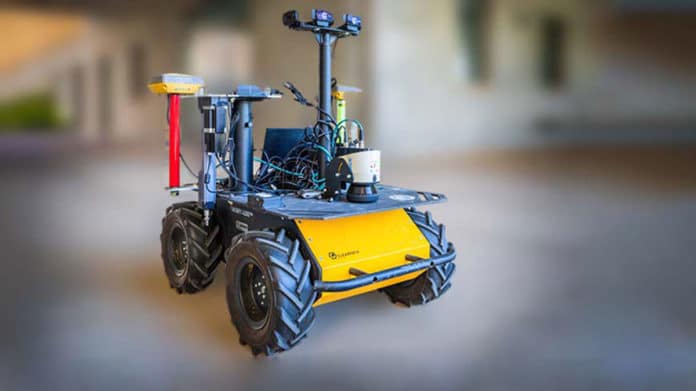A group of researchers from UC Riverside and UC Merced is working on creating an autonomous mobile agricultural robot to take samples from leaves and measure their water potential. This robot will help farmers maintain the health of their crops while managing water resources wisely.
To precisely determine water needs, farmers manually pick individual leaves from plants and place them in air-pressure chambers to see when water begins to leak from the leaf stems. This type of test takes a long time and means that farmers can only reach so many areas of the field each day. They cannot test as frequently as needed to accurately determine optimal irrigation scheduling patterns.
The research team received a grant for more than $1 million from the U.S. Department of Agriculture through the National Science Foundation’s National Robotics Initiative to address these challenges.
As part of the project, the group is working to develop a robotic pressure chamber that can autonomously take sample leaves and immediately test them on-site to provide the freshest data. The system will collect data even in large fields and in a short time.
The base robot for the new plant-moisture-measuring system researchers are developing will navigate rows of crops to reach individual leaves and stems. Frequently updated data can help farmers better plan irrigation schedules to conserve water, optimize the time and effort spent by crop specialists tasked with determining and analyzing lead water potential, and help decrease some of the costs in the food-production chain.
“In the first category, leaf samples can get mixed up, making it impossible to track them back to the specific areas of the field they came from,” said Stefino Karpen, the lead researcher for the project. “In addition, the properties of the leaf might vary given the time elapsed between being sampled and being analyzed, which in turn may yield misleading results.“
The project will use the same mobile base robot as in the Robot-Assisted Precision Irrigation Delivery, or RAPID, system, which travels along rows of crops, adjusting irrigation flows according to sensor data. But equip it with a custom-made robotic leaf sampler and pressure chamber being designed by the researchers at UC Riverside, and pair it with drones that can survey the fields and direct the robot to areas of interest.
“Using this process, growers could survey plants all day long, even in large fields,” Carpin said. The researchers expect to finish preparing by the winter of 2022, so they can begin controlled field testing.
